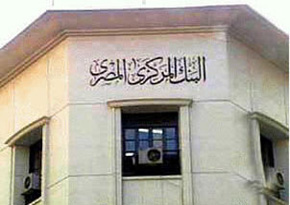 Egypt's inflation was little changed in June after easing for four months in a row, supporting the Egyptian Central Bank's decision to hold interest rates at a four-year low, according to Bloomberg
Egypt's inflation was little changed in June after easing for four months in a row, supporting the Egyptian Central Bank's decision to hold interest rates at a four-year low, according to Bloomberg
Urban inflation, the main rate monitored by the central bank, was 10.7 percent compared with 10.5 percent in May, according to the website of the Cairo-based Central Agency for Public Mobilization and Statistics.
The median forecast of six economists surveyed by Bloomberg was 10.6 percent. Prices rose 0.5 percent month-on-month.
A chief Middle East economist at HSBC Holding Plc in Dubai Simon Williams said that “I certainly see no justification for the central bank to act on interest rates before the fourth quarter of 2010”
Williams added that “If anything the rate rise should come later not earlier than that point,” forecasting inflation at 10.7 percent.
Last month, the Central Bank of Egypt said that while inflation was “elevated” because of high fruit and vegetable prices, it remained subdued enough to keep interest rates unchanged.
Central Bank of Egypt cut interest rates six times in 2009 to support economic growth in the most populous Arab country.
The economy expanded 5.8 percent in the first three months of 2010 compared with 5 percent in the previous quarter. Egypt’s benchmark EGX30 stock index has fallen 2.9 percent this year.
Some investment banks, including Cairo-based Pharos Holding, said that they expect a rise in food costs because of a June price increase by Juhayna Food Industries, Egypt’s biggest seller of packaged milk.
Dairy products account for 6 percent of the consumer price index, Pharos said in a report this week, forecasting inflation at 11.5 percent.
Food prices rose at an annual rate of 18.5 percent in June, unchanged compared to May, according to the statistics agency. Food and drinks account for more than 45 percent of the consumer price index in urban parts of Egypt.



